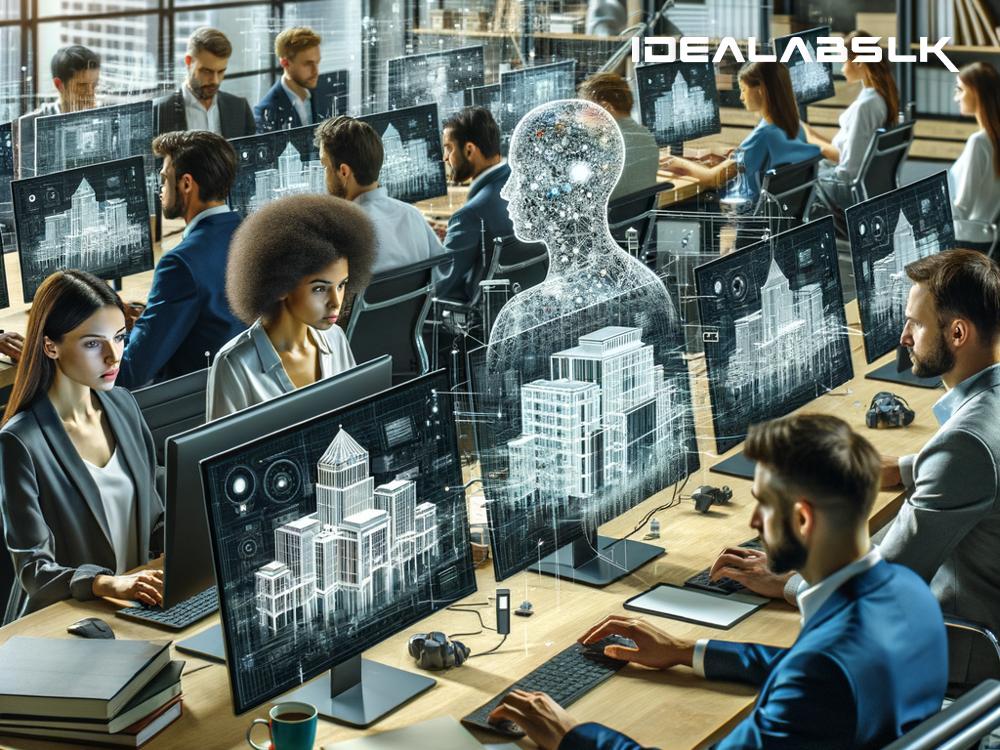How AI is Transforming Real Estate Development
The real estate industry, long known for its reliance on traditional methods, is rapidly transforming thanks to Artificial Intelligence (AI). AI is not a new concept, but its application in real estate development is revolutionizing how developers, investors, and even homebuyers interact with properties. From predicting market trends to personalizing home buying experiences, AI is making waves in ways we could hardly imagine a few decades ago. Let’s dive into the myriad ways AI is reshaping the landscape of real estate development.
Smarter Market Analysis
One of the most significant hurdles in real estate development has always been the unpredictability of the market. However, AI has turned this around with its ability to analyze and predict market trends accurately. By sifting through vast amounts of data— including past sales, property values, and economic indicators—AI can forecast future market conditions with remarkable precision. This not only helps developers understand when to build and what to build but also aids investors in making more informed decisions about where to put their money.
Enhanced Customer Experience
Buying a home is often a highly personal and emotional process. AI is changing the game by offering a more personalized experience to buyers. Through AI-powered platforms, buyers can receive property recommendations that match their specific preferences and needs, without having to sift through irrelevant listings. Chatbots and virtual assistants can provide instant responses to queries, making the home buying process smoother and more enjoyable. This level of personalization is changing buyer expectations and setting new standards in customer service.
Efficient Property Management
AI is not just transforming the development and buying process; it's also revolutionizing property management. AI-based systems can automate tasks such as tenant screening, lease management, and maintenance requests, making the management of rental properties more efficient and less time-consuming. Additionally, smart home technology, powered by AI, can enhance livability and security, offering tenants features like automated lighting, energy management, and security monitoring.
Virtual Reality (VR) and Augmented Reality (AR)
Virtual and Augmented Reality technologies, powered by AI, are providing immersive experiences that are transforming real estate marketing and viewing. Potential buyers can take virtual tours of properties from anywhere in the world, experiencing the space in a way photos or videos could never convey. This technology is especially beneficial now, as remote interactions have become more common. Furthermore, AR can overlay information on these virtual tours, providing instant data about nearby amenities, transport links, and even furnishing options.
Sustainable Development
One of the pressing issues in today’s world is sustainability, and AI is playing a crucial role in making real estate development more sustainable. AI algorithms can optimize building designs for energy efficiency, reducing the carbon footprint of new developments. By analyzing climate data, AI can also help in choosing materials and methods that are not only cost-effective but also environmentally friendly.
Risk Management
Real estate development involves significant financial risk. Thankfully, AI’s predictive analytics can assess risks related to market volatility, regulatory changes, or financial factors, enabling developers and investors to make more risk-averse decisions. This capability can lead to more stable investment returns and avoid potential financial pitfalls.
Conclusion
AI’s impact on real estate development is profound, offering innovative solutions to age-old challenges. By leveraging AI, the real estate industry can not only increase efficiency and profitability but also provide more personalized, enjoyable experiences to buyers. The possibilities are vast, and as AI technology continues to evolve, we can expect even more transformative changes in the way we develop, buy, and manage properties. The future of real estate development is here, and it's powered by Artificial Intelligence.

